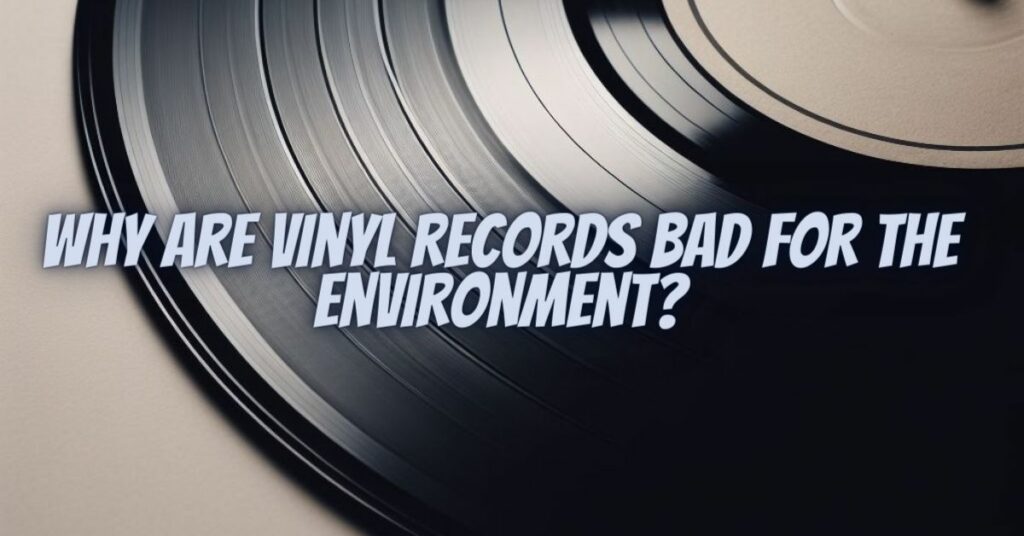Vinyl records are a popular way to listen to music, but they are also bad for the environment. Vinyl records are made of polyvinyl chloride (PVC), a type of plastic. PVC is a durable material, but it is also non-biodegradable, meaning it does not break down naturally. Additionally, the production of vinyl records requires a lot of energy and water, and produces harmful chemicals.
Here are some of the specific environmental impacts of vinyl records:
- Plastic pollution: Vinyl records are made of PVC, a type of plastic. PVC is a durable material, but it is also non-biodegradable, meaning it does not break down naturally. When vinyl records are disposed of in landfills, they can take hundreds of years to decompose.
- Energy consumption: The production of vinyl records requires a lot of energy. The PVC used to make vinyl records is derived from petroleum, a fossil fuel. The extraction and processing of petroleum requires a lot of energy, and produces greenhouse gases that contribute to climate change.
- Water pollution: The production of vinyl records also requires a lot of water. The water is used to wash the PVC pellets, and to create the steam used to press the records. The wastewater from vinyl record production can contain harmful chemicals, such as heavy metals and phthalates.
In addition to the environmental impacts listed above, vinyl records also have a number of other environmental drawbacks, such as:
- Packaging: Vinyl records are typically packaged in plastic shrink wrap, which is another non-biodegradable material.
- Shipping: Vinyl records are often shipped long distances, which contributes to their carbon footprint.
- End of life: When vinyl records are no longer wanted, they can be difficult to recycle. Many recycling programs do not accept PVC, so vinyl records often end up in landfills.
What can be done to reduce the environmental impact of vinyl records?
There are a number of things that can be done to reduce the environmental impact of vinyl records, such as:
- Buy used vinyl records: Buying used vinyl records is a great way to reduce the environmental impact of your collection. Used vinyl records have already been produced and shipped, so buying them does not create any additional environmental impact.
- Support sustainable vinyl record labels: There are a number of vinyl record labels that are committed to sustainability. These labels use recycled materials in their packaging, and produce their records in a sustainable way.
- Recycle your vinyl records: If you have vinyl records that you no longer want, try to recycle them. Some recycling programs accept PVC, so check with your local recycling center to see if they accept vinyl records.
Vinyl records are a popular way to listen to music, but they also have a negative impact on the environment. By buying used vinyl records, supporting sustainable vinyl record labels, and recycling your vinyl records, you can help to reduce the environmental impact of your collection.


